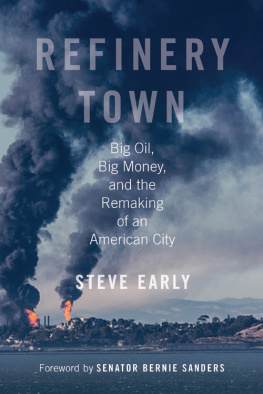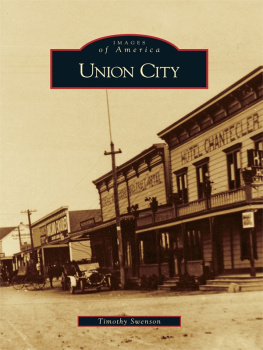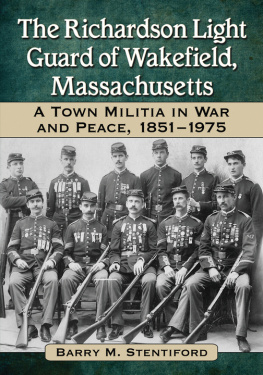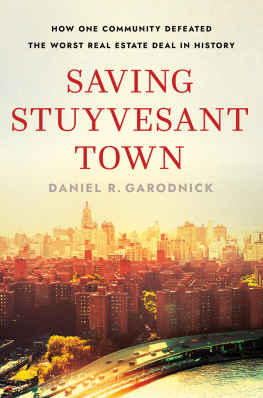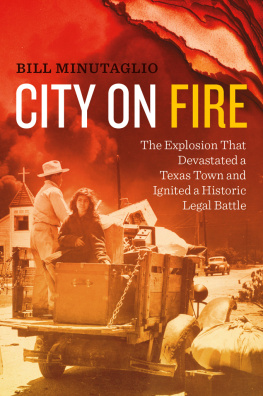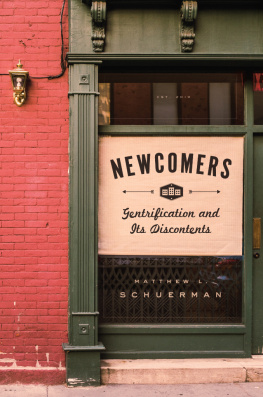Previous titles by Steve Early
Embedded with Organized Labor:
Journalistic Reflections on the Class War at Home
The Civil Wars in US Labor: Birth of a
New Workers Movement or Death Throes of the Old?
Save Our Unions: Dispatches from a Movement in Distress

To Dorothy D. Early,
a local news gatherer and
womens page editor
when there still was
such a thing
FOREWORD
TO CHANGE U.S. POLITICS, WE NEED MORE CITIES LIKE RICHMOND, CALIFORNIA
PRIOR TO THE 2016 DEMOCRATIC PRIMARIES , I made a series of out-of-state trips to discuss the economic issues facing the United States that were propelling me toward a presidential campaign. Then and later, I met with local progressive leaders, many of whom were running for mayor or city council, the state legislature, or Congress. At town meetings throughout the United States, we discussed how we could work together for real change in our country.
Richmond, California, is one place I visited where such movement building was already underway. In this century-old refinery town, a determined band of municipal reformers was battling Americas second-largest oil company for control over city hall.
Over the past decade, Chevron has made more than $200 billion in profits, ripping off Americans at the gas pump, even as it has paid hundreds of millions in fines for violating health and safety laws and polluting our air and water. In 2014, the $3 million it spent against progressive candidates in Richmond provides a vivid example of how the Supreme Courts Citizens United decision has totally corrupted the electoral process in the United States.
Corporations and wealthy individuals, like the Koch brothers, are free to spend unlimited amounts of money on local, state, and federal elections. The biggest financial players in our 2016 election cycle were the billionaire- and millionaire-funded super PACs unleashed by Citizens United. Fewer than four hundred families have contributed the majority of all the money raised by candidates and super PACs combined. According to media reports, a single family spent more than either the Democratic or Republican Parties.
Candidates favored by big business no longer have to pass the hat among thousands of individual donors. Nor must they rely on the proceeds of such fund-raising to pay basic campaign expenses. Instead, the independent expenditures made by a handful of wealthy individuals will cover these costs for them. In a city the size of Richmond, a single corporate check signer will pick up the tab on behalf of Big Oil, Big Soda, Big Banks, or whatever other corporate interest is threatened.
The price our country pays for this trend is that super PACbacked candidates are clearly unaccountable to the rest of us. In office, these politicians will, in bipartisan fashion, shower the wealthy with more tax breaks while cutting programs that help working families. As former president Jimmy Carter points out, this system of unlimited political bribery represents a complete subversion of our political system.
Fortunately, as Richmond writer and longtime labor activist Steve Early reveals in this book, there are local success stories in the fight to keep corporate giants like Chevron from just buying elections. The inspiring electoral victories in Richmond would not have been possible without the prior development of a multi-issue, multi-racial progressive organization. Our country obviously needs a great deal of change at the state and federal levels. But laying a solid local foundation, like activists in Richmond have done, is an important first step toward overcoming working-class alienation from politics and resulting low voter-turnout rates.
Refinery Town is based on one citys experience, but it reflects the lessons of grassroots organizing elsewhere, including in Vermont. After my four terms as mayor of Burlington, our collective city hall achievements provided a platform for statewide movement building in the decades since. Progressives now have far greater representation in our state legislature than in any other in America. Wherever we have more elected officials responsive to the people, that encourages wider citizen participation and helps thwart our national drift toward oligarchy, a government owned and controlled by a handful of extremely wealthy families.
We need to start engaging at the local and state levels in an unprecedented way. Hundreds of thousands of volunteers helped make history in our 2016 presidential campaign with their phone calling, door knocking, personal donations, and rally participation. Today, many remain deeply concerned about the future of our nation and their own communities.
Thats why many are now going to run for school boards, city councils, county commissions, state legislatures, and governorships. State and local governments make enormously important decisions. Without an ongoing political revolution, conservative politicians and corporations like Chevron will continue to wield undue influence in Richmond and in Washington.
Since June 2016, thousands of progressives have gone to our websiteberniesanders.com/winto learn how they can become candidates themselves or support others running for office. My supporters have launched a new organization, called Our Revolution, to help transform American politics and make our political and economic systems responsive to the needs of working families. Based on the energy and enthusiasm generated in 2016, I have no doubt that this new organization will help win significant numbers of local and state elections, if many more people become involved.
We know that taking over city hall in Richmond or any other city wont, by itself, keep big money out of politics. It cant stop climate change, eliminate economic injustice and racism, or stop law enforcement abuses. Addressing those problems requires broader movement building, national and global in scale. But local progress is still possible wherever we have government that represents all of us, not just the 1 percent. This timely book offers ideas and inspiration for making change where it counts the mostamong friends, neighbors, and fellow community members.
Senator Bernie Sanders
INTRODUCTION
FROM COMPANY TOWN TO PROGRESSIVE CITY
ON THE EVENING OF NOVEMBER 4, 2014, there wasnt much for liberals and progressives to celebrate anywhere in the United States. Federal election turnout reached its lowest level in seventy years. When the results of midterm congressional races were tallied, Democrats lost the US Senate. Republicans added to their already substantial majority in the House of Representatives. At the state level, Democratic and Republican governors hostile to workers rights and strong unions were reelected for another four years. Whether the issue was income inequality, Wall Street greed, workers rights, mistreatment of immigrants, misbehavior by police officers, campaign finance reform, or the future of the planet, the outlook was bleakat the federal level and in many states.
I had made a well-timed move to Richmond, California, three years before this election debacle. When the polls closed there in 2014, labor and community activists, environmental justice campaigners, police reformers, gay rights advocates, anti-foreclosure fighters, and defenders of the foreign-born were all partying like they lived in another country. In reality they were just fortunate to reside in a city where more than a decade of local organizing made it possible to defeat candidates funded by one of the richest corporations in the world.

